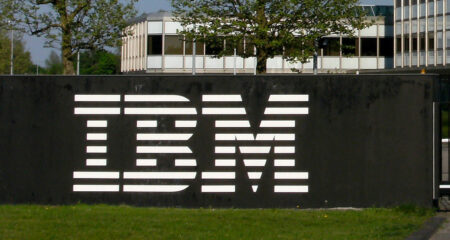
The share price of BlackBerry, the long-suffering smartphone manufacturer until recently known as Research in Motion, leapt higher on Monday on renewed speculation that China’s biggest PC maker, Lenovo, could make a play for the company.
BlackBerry’s share price shot up by more than 14% after Lenovo CEO Yang Yuanqing told French newspaper Les Echos that the high-flying computer firm might consider buying out the troubled Canadian company, which, after having popularised smartphones 15 years ago, has bled market share to the Apple iPhone and devices running Google’s Android operating system.
Lenovo has enjoyed astonishing successes in the PC business in recent years, growing its market share consistently on the back of a steady improvement in the quality of its desktops and notebooks. Today, Lenovo is challenging Hewlett-Packard for the PC throne — International Data Corp figures show Lenovo had 14,9% of the global PC market by unit shipments, just behind HP with 16,5%. Lenovo’s shipments jumped by 19,2% in 2012, making it the world’s fastest-growing PC vendor. In the fourth quarter of 2012, its sales were up by 8,2% year on year while the overall market went backwards amid disappointing sales of Microsoft’s new Windows 8 operating system.
Though many perceive Lenovo as a PC brand only, the company has gained traction in the smartphone business in China, where it sells more devices than Apple. Analyst firm Gartner expects it will displace Samsung Electronics as the biggest-selling smartphone brand in China this year. Lenovo has also begun a foray into India, launching five affordable Android-powered handsets.
Outside these markets, though, Lenovo has little brand recognition in the smartphone market. While its PCs are well known in Europe and North America — helped, in part, by its blockbuster US$1,8bn acquisition of IBM’s PC business in 2005 — the same simply isn’t true of its smartphones. Also, the perception is that Lenovo’s handsets are aimed at the low to middle tier of the market rather than competing at the premium end with Apple’s iPhone 5, Samsung’s Galaxy S3, HTC’s One X and Nokia’s Lumia 920.
As it did eight years ago when it snapped up IBM’s PC business — getting people to sit up and pay attention — could it be about to do the same in the smartphone space by buying BlackBerry? Though BlackBerry is a deeply troubled company — it’s engaged in what is arguably a life-or-death struggle to reinvent itself — it has a number of valuable assets that could prove attractive to a suitor.
Firstly, it has its own operating system platform in the new BlackBerry 10. It’s really good software, especially for a version-one operating system, and could help Lenovo wean itself off its reliance on Google’s Android, assuming that’s a strategic imperative.
Secondly, BlackBerry makes great hardware. Legions of fans swear by the company’s physical keyboards. And its new flagship device, the Z10, shows it has what it takes to make a utilitarian yet good-looking touch-only device.
Lastly, the company retains strong market share and has favourable brand recognition in fast-growing developing markets in Africa, Southeast Asia and South America. These are the markets where Lenovo has the biggest opportunity for growth with smartphones that cost less than $250. It’s here that BlackBerry has excelled with its Curve line-up of keyboard-based devices. It’s a platform that Lenovo could use as a base for expansion.
Will Lenovo buy BlackBerry? It may make sense, at least on paper. — (c) 2013 NewsCentral Media
- Duncan McLeod is editor of TechCentral; this column is also published in Financial Mail




